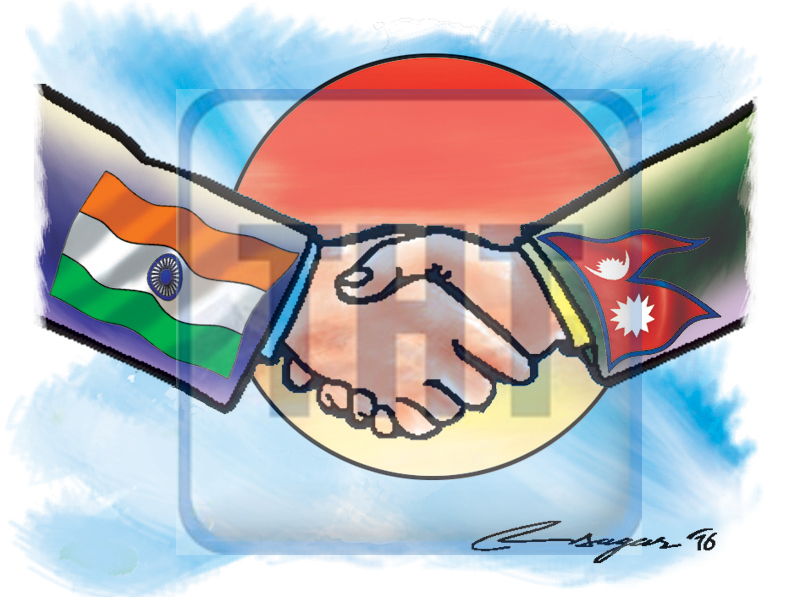Nepal-India energy JSC meeting begins
Kathmandu, October 14
With an aim to finalise details related to the much talked about transmission line and energy banking projects through mutual understanding, the two-day Nepal-India energy secretary-level talks have begun in the southern Indian city of Bangalore today.
Dinesh Kumar Ghimire, secretary at the Ministry of Energy, Water Resources and Irrigation (MoEWRI), is leading the Nepali delegation, whereas his counterpart Subhash Chandra Garg is heading the Indian team.
As per MoEWRI officials, the meeting will focus on finalising the construction modality of the 400 kVA New Butwal-Gorakhpur cross-border transmission line and on giving the final touches to the energy banking agreement with India.
Prabin Aryal, joint secretary at MoEWRI, who is also a participant in the discussions, said that the secretary-level talks, also called Joint Steering Committee (JSC) meeting, will discuss the overall agenda. Prior to the JSC meeting, the joint secretary-level Joint Working Group (JWG) meeting was held today to finalise the agendas for the JSC meeting which will be held on Tuesday.
The New Butwal-Gorakhpur cross-border transmission line project is a must to implement the US government’s Millennium Challenge Corporation assistance to Nepal, according to Aryal.
“We hope that the construction modality of the New Butwal-Gorakhpur cross-border transmission line project will be finalised in the meeting,” he added. “Government authorities from both sides have spent a lot of time preparing the groundwork for the agreement and we hope it will be finalised this time.”
Aryal informed that there has been agreement to construct the transmission line on government-to-government modality and the detailed project report has also already been finalised.
The cross-border transmission line project has been under discussion for a long time and the issue was also raised during the last JSC meeting in Pokhara on January 23. Back then, Nepal and India had agreed to sell more electricity to Nepal. Similarly, at the Pokhara meeting, both the governments had agreed to build the respective length of the transmission line that falls in their territory.
Of the total 140-km-long transmission line, 20 km falls in Nepal’s territory and remaining 120 km lies in the Indian territory. Moreover, Nepal had pledged to invest 50 per cent of equity in the Indian side of the transmission line. At that meeting, Nepal had also agreed to pay cent per cent wheeling charge for seven years from the beginning of the transmission line operation.
After seven years of operation, Nepal has proposed that both countries must pay according to the quantum of energy used through this transmission line. However, India had refused to accept that proposal.
However, during the two-day Infrastructure Summit on September 11 and 12 held in Kathmandu, Indian Minister of State for Power RK Singh had pledged to support the usage proposal of the transmission line and its construction modality, among others, in a meeting with Barsha Man Pun, minister for energy, water resources and irrigation.
During the last meeting in January, Nepal and India had discussed opening a joint company to implement the project and there was also talks on India providing interest-free loan to fund the construction works. The meeting, however, did not make any agreement.






